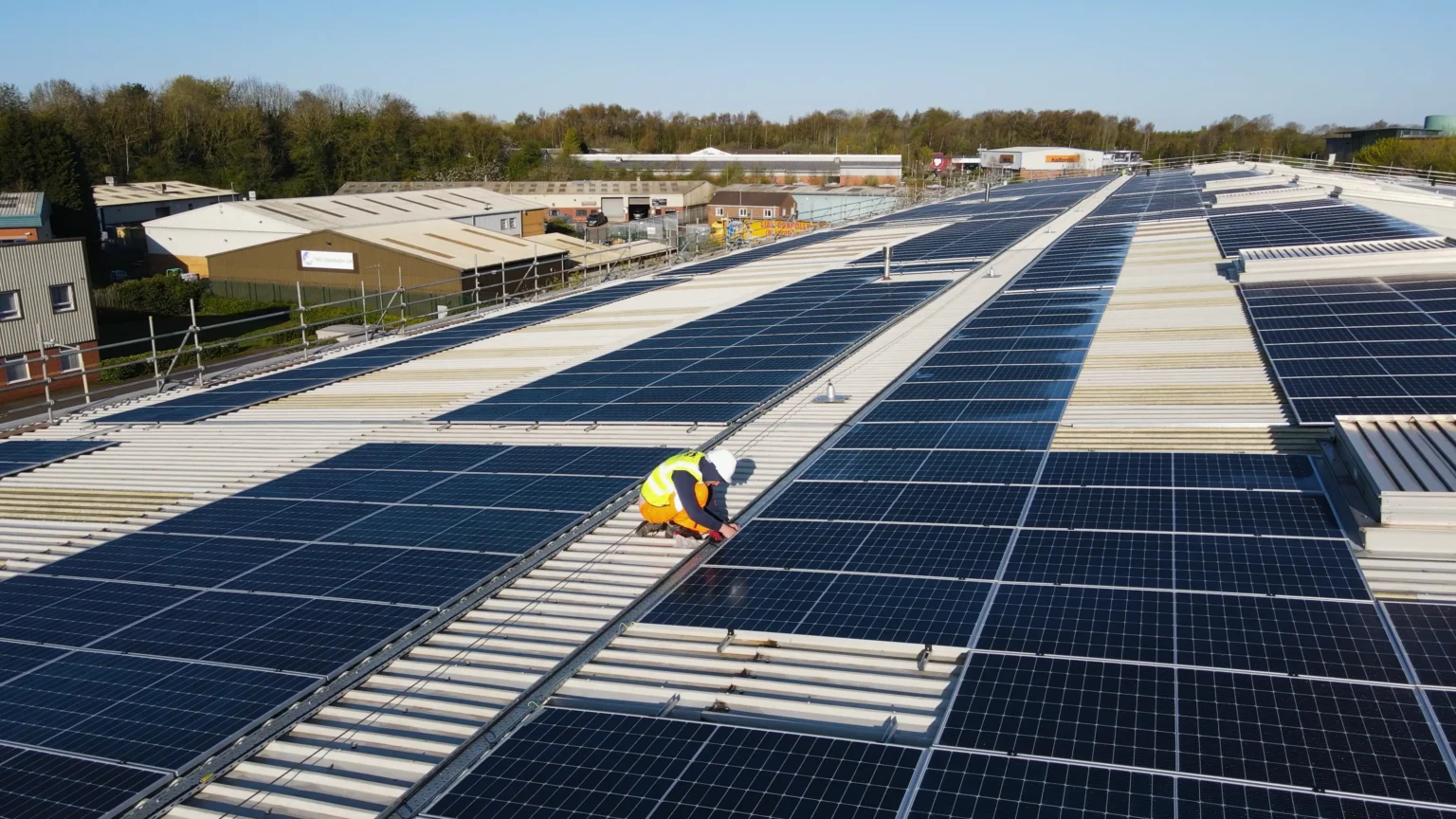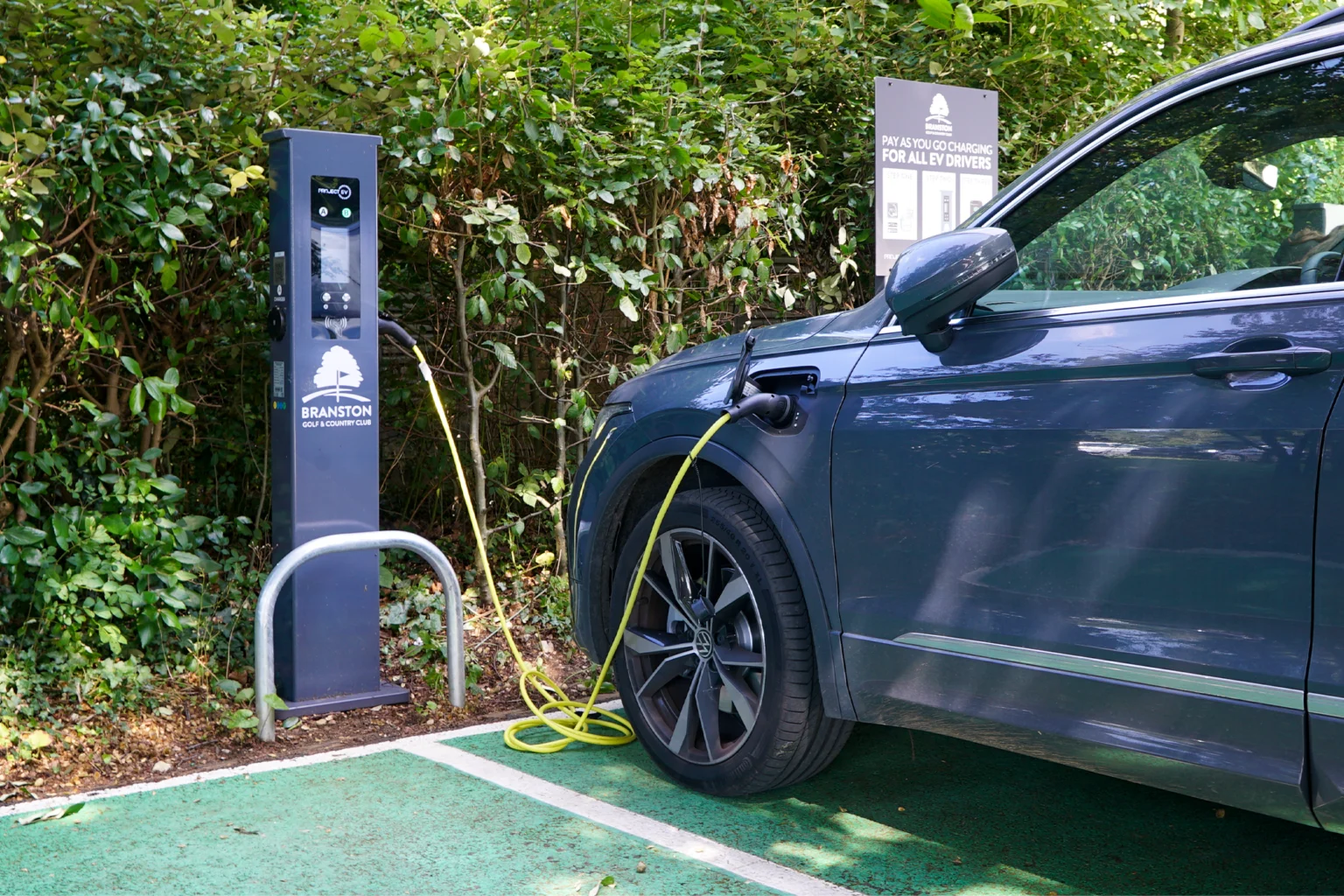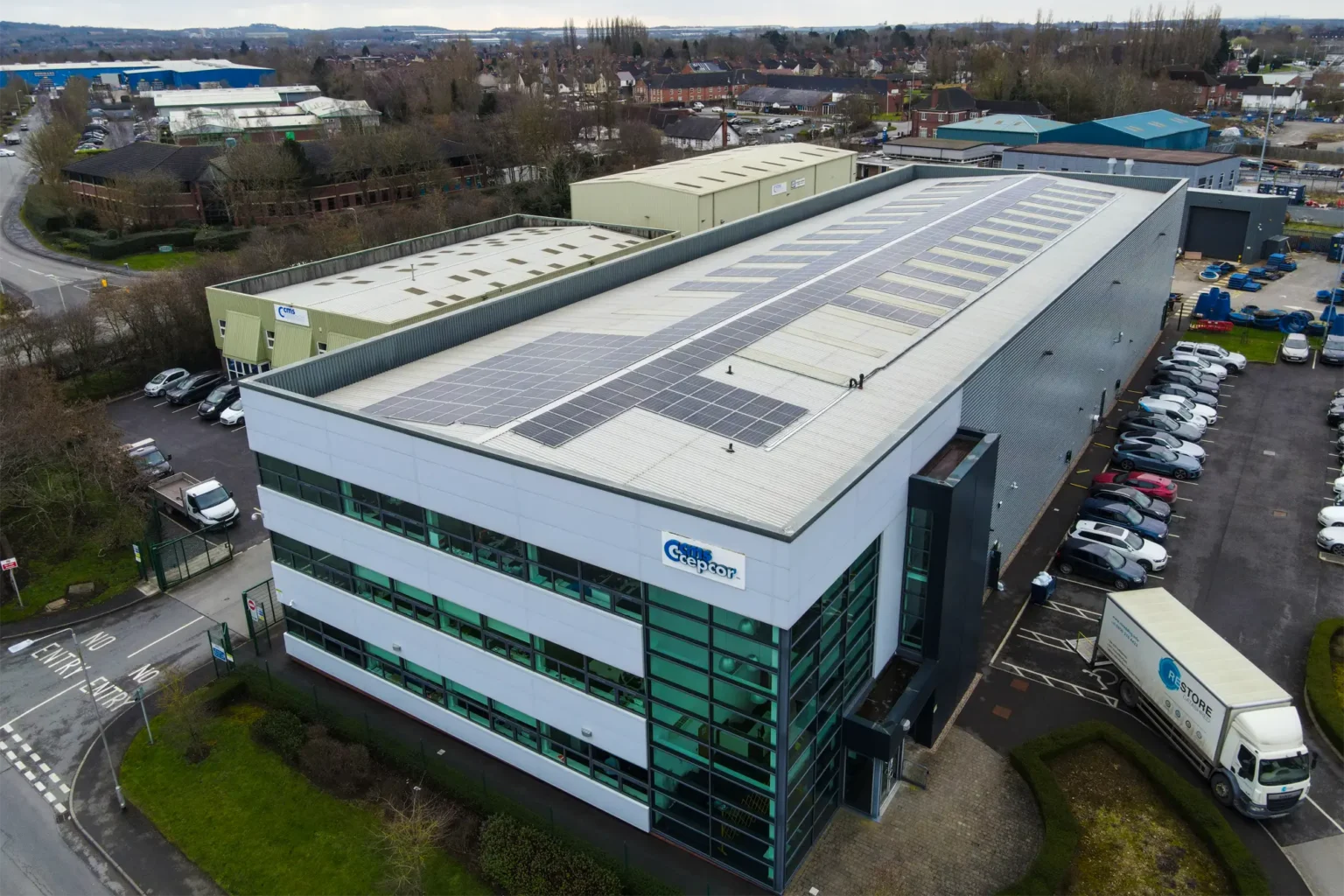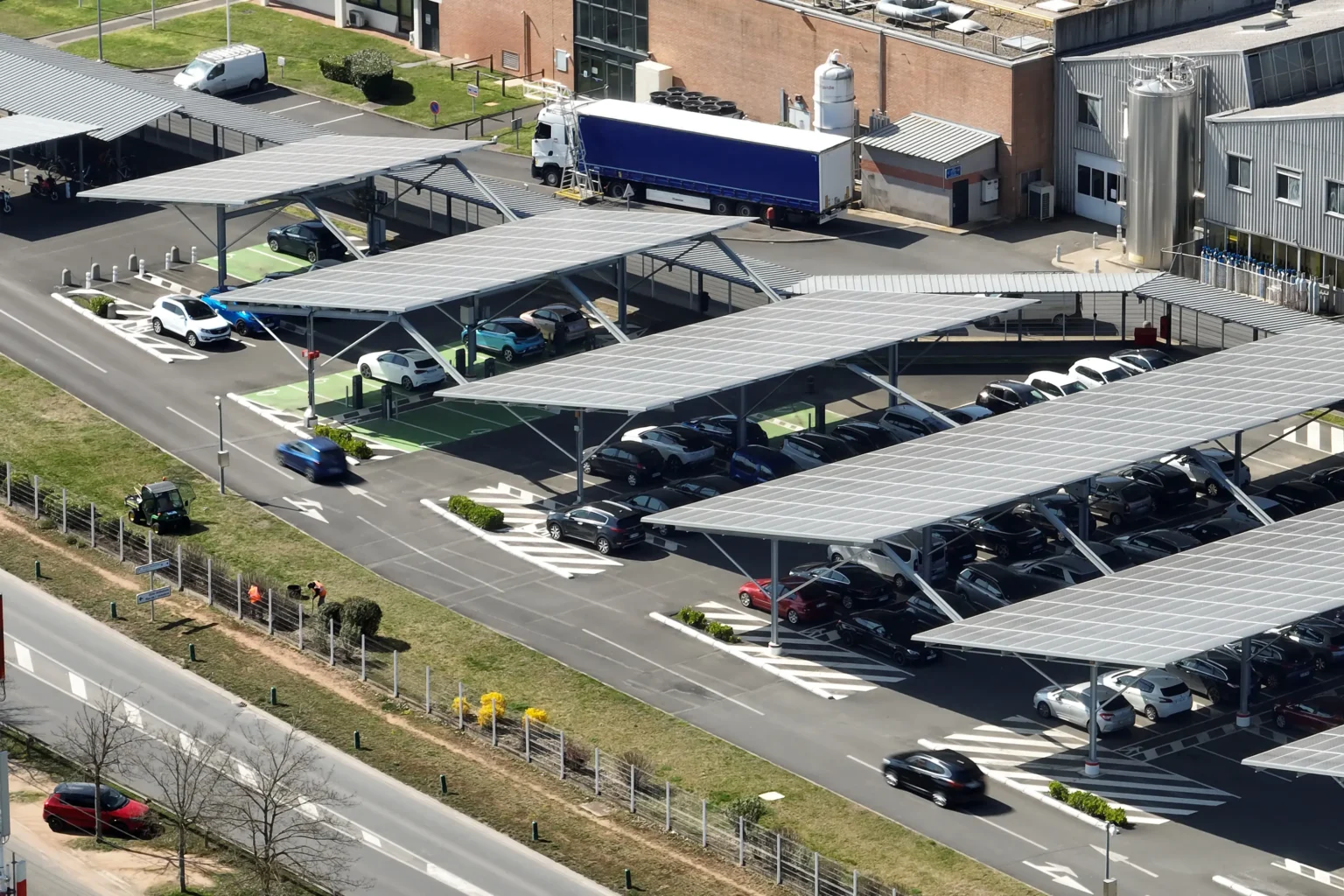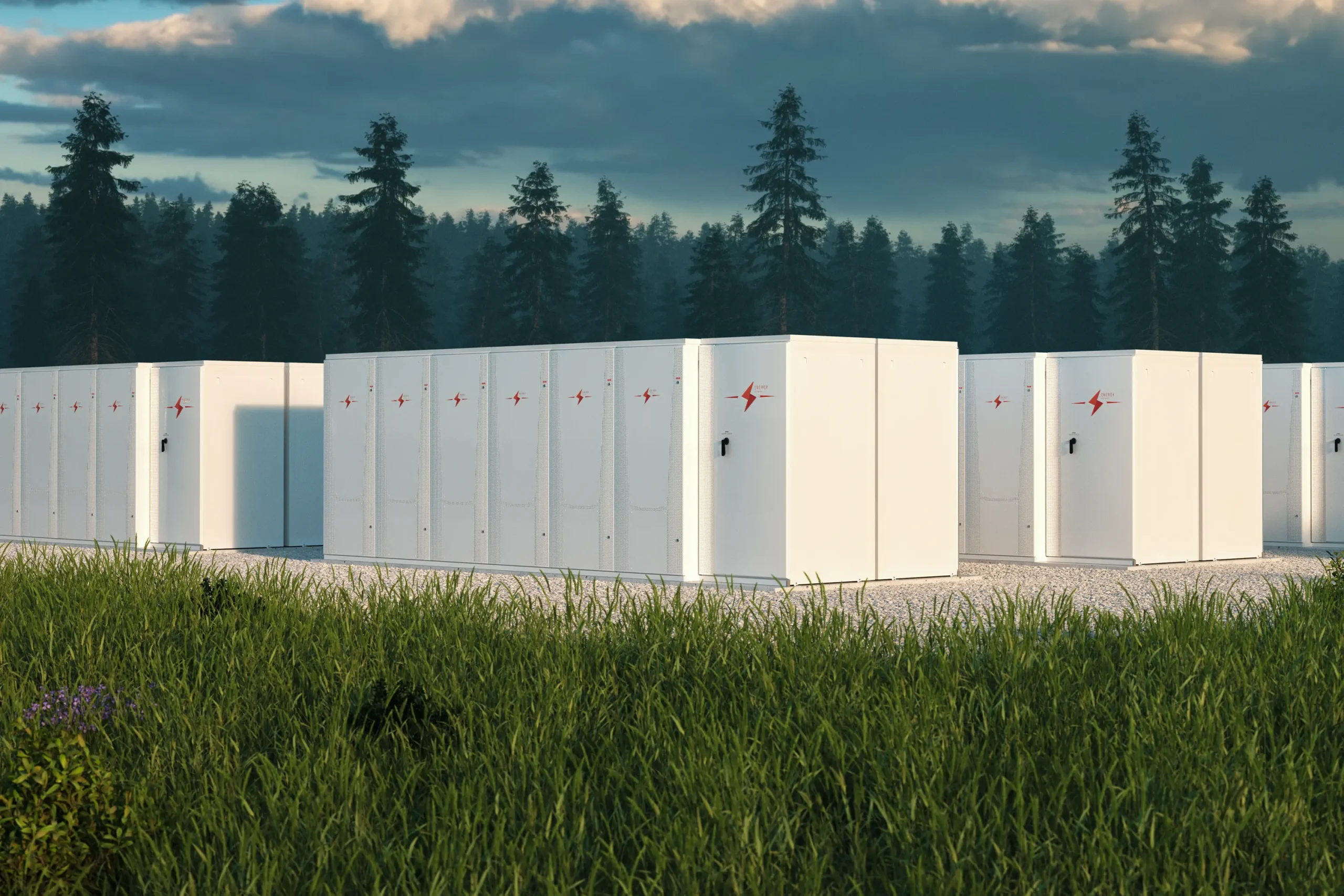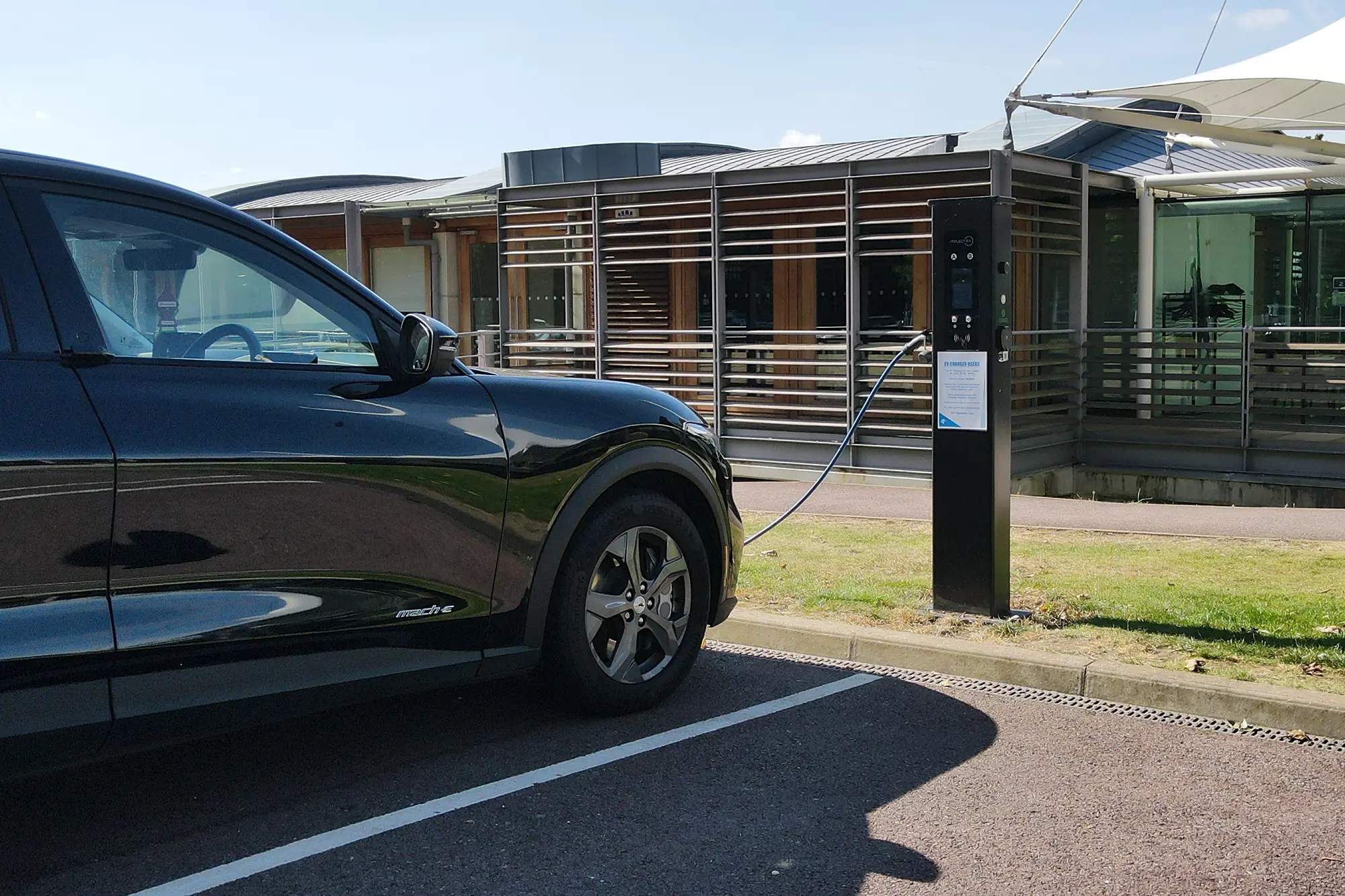Care homes typically run heating around the clock and on average a 20-bed care home uses around 395,000 kWh of energy annually. This is equivalent to the energy usage of approximately 18 small residential homes. Given the need to maintain consistent temperatures for the well-being of elderly residents, heating accounts for around 70% of a care home’s running expenses. The optimal room temperature for elderly individuals is between 18°C and 21°C, which is essential for their comfort and physical health.
As well as investing in modern central heating systems, cavity wall insulation, double glazing and air source heat pumps to reduce costs, another clear consideration is reducing your reliance on the National Grid by generating and storing your own power.
Solar panels convert sunlight into photovoltaic energy (PV) and turn it into direct current (DC). The DC energy then passes through an inverter and converts into alternating current (AC) used to power appliances within nursing homes. Surplus electricity can be stored in solar battery storage units, which is beneficial for colder, darker months.
Project Better Energy can help care homes firms apply for grants to help pay for solar installations in care homes. For example, the UK Shared Prosperity Fund (UKSPF) has recently been extended for a transition year in 2025-26 with an allocation of £900 million, ahead of broader local growth funding reforms. The UKSPF continues to support local communities and businesses across the UK and could be used to apply for solar power installation funding for care homes.
There is also the Rural Community Energy Fund (RCEF) which can provide funding for solar installations in care homes. The fund supports small-scale renewable energy projects, including on-roof solar panel installations, to help reduce energy costs and carbon emissions. Care homes can apply for grants through the RCEF to cover part of the installation costs, making it more affordable to transition to renewable energy.
Project Better Energy can help you conduct a site survey and put together a feasibility study evaluating the technical and financial viability of the proposed solar installation. We can also assist with application process itself and then manage the installation and associated reporting and monitoring for the RCEF.
While the initial cost of installing solar panels may look hefty, Project Better Energy can work with you to agree a Fully Funded Power Purchase Agreements (PPA). Many firms have been paying more than 50p per unit in recent times. More importantly, PPAs eliminate the upfront capital expenditure of buying and installing the PV panels, instead you deliver power from your panels back to the Grid in exchange for low prices of power. Typical price per kWh unit of energy for businesses buying solar panels via a PPA are 16p per kWh, rising by 4% per annum, when many firms today are still paying rates of 40 to 50p per unit today.
In summary, PPAs offer the following key benefits for care home managers considering solar panel installations:
-No Upfront Costs:
The solar provider covers the cost of designing, installing, and maintaining the solar power system, allowing businesses to adopt renewable energy without a significant initial investment.
-Low & Stable Energy Costs:
PPAs provide a stable and often much lower electricity rate compared to traditional rates. This predictability helps businesses manage and forecast their energy expenses more effectively. With PPAs care home often see substantial savings on their electricity bills by purchasing power at a lower rate than what they would pay their utility company. In post installation analysis of several of our commercial solar installs we found sites were able to cut energy bills by an average of 40.2%.
-Positive Environmental Impact:
Using solar energy reduces reliance on fossil fuels, helping businesses decrease their GHG emissions and contribute to a more sustainable future. It contributes to reduced Scope 2 and, potentially, Scope 1 emissions.
-Maintenance Free:
The solar provider typically handles all maintenance and repairs during the typical 15 to 25 year contracts, ensuring the system operates efficiently without additional costs or effort from the care home.
-Energy Independence:
Generating electricity on-site with solar panels can reduce dependence on external energy suppliers and mitigate the impact of energy price fluctuations. Further energy independence can be secured through the use of solar battery storage which Project Better Energy can also specify, supply and install for you.
-Enhanced Differentiation and Reputation:
Adopting renewable energy demonstrates a commitment to sustainability, which can enhance a care home’s reputation among customers, stakeholders, and the community.
These benefits make PPAs an attractive option for care homes looking to embrace solar energy without the financial and operational burdens of owning and maintaining the system themselves. Come to us if you are planning a solar panel installation and want advice on how to fund it and maximise your power savings.



